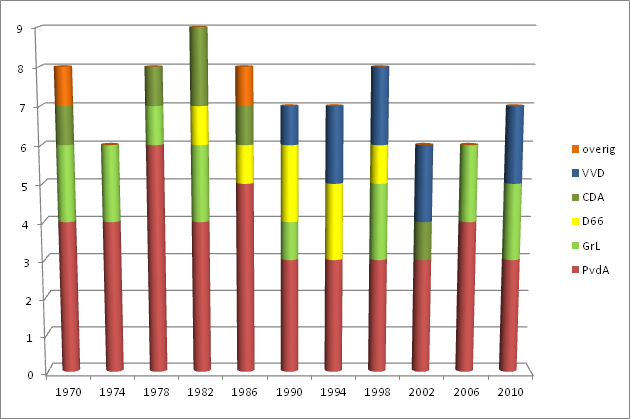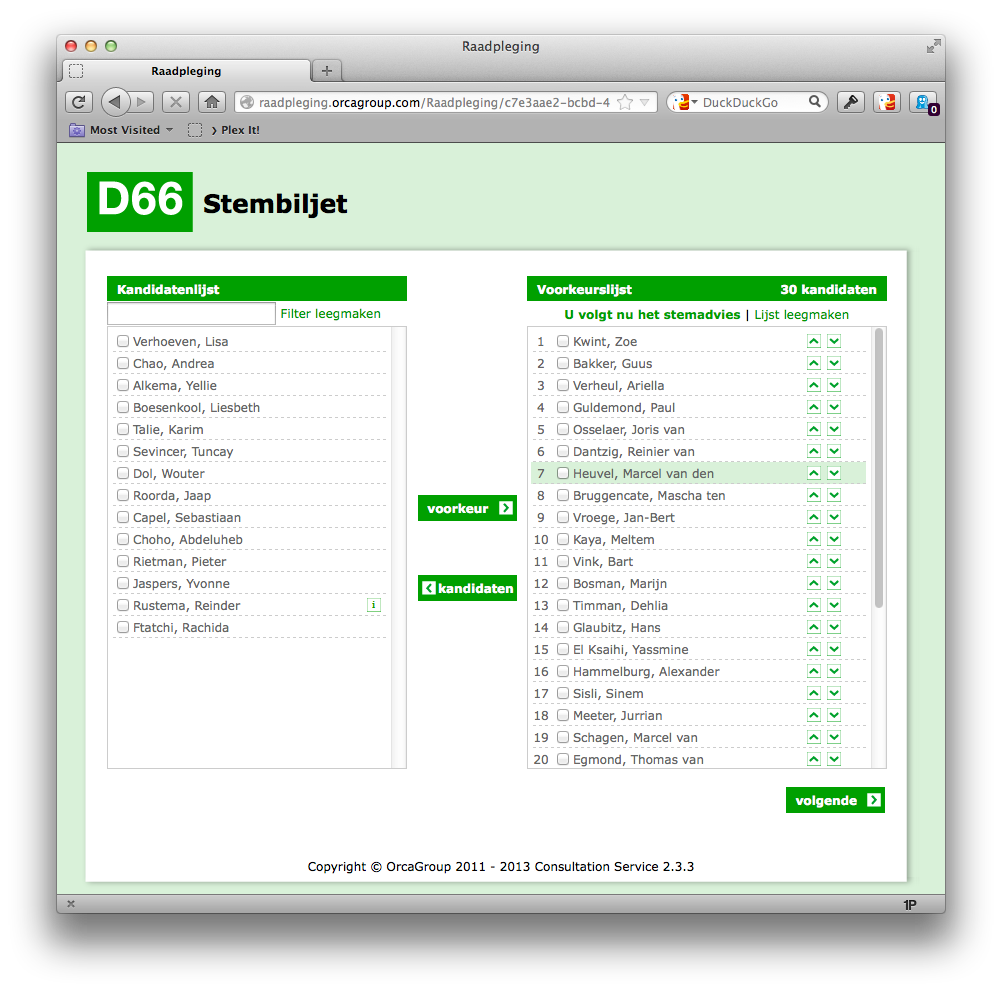Aan: De Tweede Kamer
t.a.v. Bureau Woordvoering Kabinetsformatie
Postbus 20018
2500 EA Den Haag
Geachte heer Putters,
Al bijna twintig jaar verdedig ik een extra-parlementaire regering, hoewel niet altijd onder die naam. In opiniestukken, op de radio en in relevante gremia. Op de blog laatbestuurdersbesturen.rustema.nl documenteer ik dit grotendeels.
Daarmee is mij duidelijk geworden dat de beschrijvingen en analyses door experts van wat bestaat en gedaan is alleen het kader geeft waarbinnen onze volksvertegenwoordigers moeten handelen om vorm te geven aan de toekomst. Maar er is geen routekaart, die weg naar de toekomst stippelen we daarna uit. Wij hier in Nederland zijn daar door toevallige omstandigheden wereldwijd gezien het beste toe in staat. Nu, in deze weken kan dat beginnen. Dit is een scharniermoment.
Overdag ben ik de oprichter en eindredacteur van de website petities.nl sinds 2005. Deze site is een consequentie van mijn denken over een extraparlementair bestuur. Het dient als de – neutrale – ondersteuning van parlementaire politiek vanuit burgers. Dit is de populairste politieke website van het land, met miljoenen bezoekers. Ik doe er de eindredactie van tot nu toe ongeveer 15.000 petities van burgers die samen ongeveer 19 miljoen ondertekeningen registreerden.
Aanvankelijk werkte ik ruim een decennium als docent op de universiteit, maar ik deed er geen onderzoek, ik maakte studenten enthousiast over het potentieel van internet (ik pionier zelf al sinds 1991) en de kennis paste ik ondertussen toe op petities.nl. De afgelopen acht jaar werk ik volledig aan petities.nl. Want behalve analyseren wil ik namelijk ook graag ideeën uitwerken, zoals deze site. Wat daar binnenkomt is inspiratie voor mijn ‘out of the box’-ideeën.
Een politicoloog die ik bevroeg over de potentie van een extra-parlementaire regering gaf toe:
Wij analyseren en bekritiseren machtsverdeling zoals het bestond en bestaat, hier en elders in de wereld. Maar we geven geen recepten of adviezen. Vanuit onze praktijk kunnen we dat per definitie niet. Als individu en burger kan ik wel een mening geven, maar die van de gekozen volksvertegenwoordigers is veel belangrijker want zij geven gaandeweg vorm aan de praktijk.
Binnenkort overhandig ik de Kamerleden een petitie ‘extraparlementair nu‘ waarmee ik ze er graag op wil wijzen dat de vorm van de volgende regering een uniek en historisch ‘founding fathers’-moment’ kan worden. Hoewel er geen nieuw bestel opgetuigd hoeft te worden is dit het moment om machtsverdeling voor de toekomst te bepalen, als verdere uitwerking en actualisering van het grondwerk van Thorbecke. Niet alleen een tussenvorm omdat het gebruikelijke formatie nu niet lukt. Dit is de toekomst. Dit is de vorm voor een andere bestuurscultuur.
Na de ontvangst van alle reacties op mijn pleidooi heb ik mijn voorstel steeds verder aangescherpt. Doe er uw voordeel mee:
- Het is geen ‘tussenvorm’ maar de nieuwe vorm voor de toekomst. We moeten hierin investeren omdat het langdurige formaties bespaart; er zijn continu mini-formaties op onderwerpen gaande.
- Het is niet een vraag of een partij nog wel enkele bewindslieden mag leveren, het is cruciaal dat alle bewindslieden via een procedure buiten de partijen om worden geworven en geselecteerd, geen partij mag nog ‘eigen’ mensen in de regering hebben.
- Daarbij is het evengoed cruciaal dat geen enkele partij een minister-president levert, dat de rol weer kleiner wordt gemaakt tot voorzitter van de ministerraad, bijvoorbeeld door het voorzitterschap te laten rouleren. Het gezicht van Nederland in het buitenland is dan voornamelijk de minister van Buitenlandse Zaken.
- Er zullen bewindslieden ongeschikt blijken of zelf vertrekken. Omdat ze niet van een partij zijn kunnen die vervangen worden zonder dat de regering valt, er nieuwe verkiezingen en een nieuwe regering nodig is.
- Bewindslieden gaan door totdat de Tweede Kamer het tijd vindt voor een vervanger. Een door verkiezingen veranderde Tweede Kamer krijgt vanaf dag 1 een functionerende en missionaire regering voor zich. De missie wordt gaandeweg aangepast in debat met de plenaire Kamer.
- Voor de werving van bewindslieden stelt de Tweede Kamer vacatures op, maar verwacht vooral veel van ‘voorgedragen’ kandidaten. Omdat er een ‘afbreukrisico’ is kunnen veel geschikte personen niet zelf solliciteren. Ze kunnen wel gevraagd worden nadat ze op basis van de vacature, de cv en een discreet gesprek met een commissie van fractievoorzitters geschikt lijken.
- Na selectie volgt een publieke kennismaking/sollicitatie in de Tweede Kamer met alle Kamerleden. Journalisten vinden kort erna eventueel nog lijken in de kast die de commissie niet heeft kunnen vinden. Waarschuw hier tevoren publiekelijk voor. Deze bestuurders hebben niet per se een carrière in de schijnwerpers gehad maar zijn meer gewone burgers.
- Benadruk dat dit gewone burgers zijn die dankzij de geheime verkiezingen niet hebben laten weten wat ze bij verkiezingen stemden. Ze komen immers niet uit politieke partijen, waarschijnlijk hebben ze ook niet altijd hetzelfde gestemd. Laat ze het vooral geheim houden wat ze stemden. Omdat ze niet van een bepaalde partij zijn, zijn ze minder kwetsbaar voor aanvallen van burgers op grond van wat hun partij oproept aan associaties en emoties.
- Maak ook duidelijk dat het niet om ‘technocraten’ gaat die vanuit een spreadsheet het land besturen en het parlement op afstand of buiten spel willen zetten. Ze zijn politiek aansprakelijk en dienen de Tweede Kamer. Omdat ze makkelijk te vervangen zijn moeten ze hun beleid goed verdedigen en in kunnen schatten waar een meerderheid voor te vinden is. Tegelijk moeten ze zich ook binnen de ministerraad sterk maken voor hun domein.
- Ook is het geen ‘zakenkabinet’, want dat roept associaties op met ofwel zakenmensen die het land als bedrijf gaan besturen ofwel zaakwaarnemers die tijdelijk op de zaak passen totdat een normale meerderheidsregering mogelijk is.
Dit alles samen zorgt voor een moderne en robuuste vorm van machtsverdeling die nog nergens ter wereld in deze vorm geperfectioneerd is, hoewel elementen wel elders te vinden zijn. Dit is een scharniermoment.


